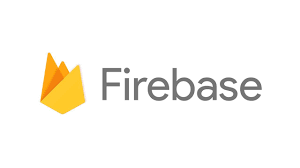Best backend services for your NodeJS app
Developing agile and high-performance applications requires a great deal of expertise. Coding with NodeJS and using suitable backend service looks like a high starting point. Developers need these components to develop applications that run flawlessly, do not produce any issues, and require less maintenance.
NodeJS is an open-source platform option preferred by many JavaScript developers today, and one that you can easily use. But, evaluating the best backend services for your NodeJS app is quite essential to ensure optimal development outcomes. Read on to gain valuable insight into NodeJS and suitable backends for it.
Contents
- 1 What is NodeJS?
- 2 NodeJS Advantages
- 3 What is a Backend as a Service?
- 4 BaaS Advantages
- 5 The best backend services for your NodeJS app
- 6 Back4app
- 7 Firebase
- 8 Kuzzle
- 9 Kumulos
- 10 AWS Amplify
- 11 NodeJS Backend Providers Comparison
- 12 General FAQ
- 13 What is NodeJS?
- 14 What is a BaaS – Backend as a Service?
- 15 What are the best backends for your NodeJS app?
What is NodeJS?
NodeJS, also referred to as Node.js, is a multiplatform, open-source JavaScript runtime environment first released in 2009. It is a server-side platform based on Chrome’s JavaScript Engine. Developers can utilize this platform for creating scalable and fast server-side and networking apps.
Code has to be written in JavaScript, and applications can run across Node.js runtimes on Microsoft Windows, OS X, and Linux devices. With this platform, developers can access multiple JavaScript modules that enable hassle-free development.
NodeJS is suitable for developing apps that require persistent browser connections, including real-time applications such as news feeds, web push notifications, and chat. The Node.js runs on dedicated HTTP servers and is meant to run single processes and single threads. Applications created with Node.js run asynchronously and are event-based.
Code created with NodeJS goes against the conventional ‘receive, process, send, wait, receive’ model. NodeJS performs incoming request processing through a constant stack and relays small requests one by one, without waiting for any response. NodeJs offers benchmark scalability to developers.
NodeJS Advantages
- Smooth learning curve – Node.js utilizes JavaScript, which is among the most widely-used programming languages. Developing applications on this platform is easy to learn for anyone who can write JavaScript code. It is easy to learn and also quite easy to work with.
- High performance – Node.js uses JavaScript code through the V8 JavaScript engine from Google. The Engine helps to compile JavaScript code into machine code directly. As a result, developers find it faster and easier to perform code implementations. Non-blocking I/O operations support helps to make code execution faster.
- Scalability – Another critical advantage of Node.js is the level of scalability it offers for developers. It enables both vertical and horizontal scaling. Adding additional nodes to systems helps developers to perform horizontal scaling with ease.
What is a Backend as a Service?
Backend as a service (BaaS) is a cloud service model that facilitates fast and efficient cloud infrastructure management. It enables developers to carry out backend development automation. BaaS companies are responsible for the setup, running, configuration, and maintenance of servers. Some of the most critical features of BaaS include data management, APIs, file storage, and push notifications.
In a BaaS cloud infrastructure, APIs and SDKs work as connectors between cloud backend services and applications. BaaS APIs are created to function as bases for iOS and Android platforms. Backend as a service minimizes the requirement for developers to invest in any kind of hardware. It is one of the most flexible options for enhanced API development.
BaaS Advantages
- Scalable – Numerous developers prefer baaS across the world for the type of scalability they get. Developing with BaaS enables instant requirement-specific scaling. A fast and scalable backend can be a powerful tool for helping businesses get robust and high-performance applications.
- Easy to use – BaaS services are quite easy to use for most developers. They do not have to focus on carrying out any hosting and maintenance activities. A BaaS company performs all necessary maintenance activities.
- Reduces development time – BaaS enables problem-free and fast development as developers are free from the burden of server management. It helps to make the most vital resources instantly available for developers. This is why BaaS enables faster development than with other cloud service types.
- Greater flexibility – BaaS gives developers a lot more flexibility if compared to other cloud service model alternatives. BaaS enables fast and smooth mobile application development, web development, and API deployments.
The best backend services for your NodeJS app
We will provide five backend options to host your NodeJS application. The list covers proprietary and open-source platforms, self-hosted and cloud options, and most of the providers offer generous free tiers.
Back4app

Back4App is an open-source, relational, scalable backend. This open-source backend is one of the most popular NodeJS backend options to consider. Back4App is preferred for the usability and flexibility it offers to developers. It can be used for the development, management, and hosting of applications within an integrated platform. Back4App can host APIs for mobile, IoT, and web applications.
Firebase

Firebase is widely used as a BaaS platform for NodeJS application development. It comes with a broad selection of components and features that facilitate web and mobile application development. Firebase is a NoSQL service that utilizes a JSON protocol for the storage of data.
Kuzzle

Kuzzle is a backend used by developers for the creation of web, mobile, and IoT applications. It provides a range of conveniences, including real-time queries, better data security, data storage, faster results, and more, for developers’ needs using NodeJS. It offers a multiprotocol API, plugins, administration console, and a scalable server.
Kumulos

Kumulos is a backend platform utilized for the development of mobile applications. It offers a wide range of features, including in-app messaging, analytics, app store optimization, and geo-targeting.
AWS Amplify

AWS Amplify consists of various components and services that aid in the development of AWS-based full-stack apps. It is preferred by developers who are creating frontend and mobile applications. Amplify aids in creating customized onboarding flows, real-time AI feeds, voice-driven experiences, and targeted campaign launches.
NodeJS Backend Providers Comparison
| Open-Source | Core Features | Pricing | |
| Back4app | Yes | – Relational backend – GraphQL and REST APIs – Multi-region | Free Tier Plans starting at $5/mo |
| Firebase | No | – Realtime database – NoSQL database – Multi-region | Free tier Pay as you go |
| Kuzzle | Yes | – Multiprotocol API – Admin Console – Realtime | Download for free Cloud starts at $1,200/mo |
| Kumulos | No | – Messaging – Analytics – App Store optimization | – Free trial |
| AWS Amplify | Yes | – Offline Sync – GraphQL API – Integration with AWS | – Free tier – Pay as you go |
Conclusion
The article detailed the best backend services for your NodeJS app. The services offered are flexible and range from proprietary platforms like Firebase to open-source ones like Back4app. The features cover NoSQL and SQL databases, push-notifications, APIs, etc.
General FAQ
What is NodeJS?
NodeJS, also referred to as Node.js, is a multiplatform, open-source JavaScript runtime environment first released in 2009. It is a server-side platform based on Chrome’s JavaScript Engine. Developers can utilize this platform for creating scalable and fast server-side and networking apps.
What is a BaaS – Backend as a Service?
Backend as a service (BaaS) is a cloud service model that facilitates fast and efficient cloud infrastructure management. It enables developers to carry out backend development automation. BaaS companies are responsible for the setup, running, configuration, and maintenance of servers.
What are the best backends for your NodeJS app?
– Back4app
– Firebase
– AWS Amplify
– Kumulos
– Kuzzle



